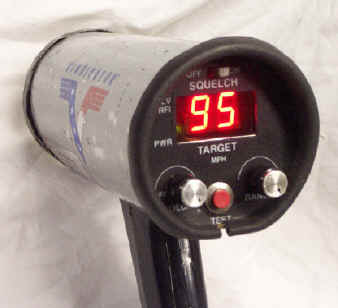
Calibration of police radar guns is typically handled by the state. Usage of radar is usually governed by rules from the FCC, so certified technicians do the calibration in house. However, there are protocols to follow when working with a radar gun, including testing the gun for accuracy. If you plan to use a radar gun to measure the speed of an object, you should first understand how to be sure the speed is measured properly.
Tuning Fork
States may require different levels of calibration depending on the rules that govern the usage of radar guns. Typical policy dictates that officers must test a speed gun at the beginning and end of each shift. The officer uses a tuning fork to gauge the speed of the object, but there is a button that performs an internal test. Either way you test, the tuning fork or testing button, a pre-set speed should appear on the gun. Perform this test in each radar mode to properly test the device for accuracy.
Calibration Frequency
Some states may require that guns are calibrated by a certified professional once a year, other may require multiple calibrations performed throughout the year. Other states rely on the tuning fork method to test the accuracy of a radar gun.
For instance, Florida requires a radar gun to go through a calibration every 6 months. This helps ensure that the gun is accurate, leaving little room to contest the data in court. Some precincts may have the officers turn in their radar guns for calibration at the end of a shift too.
Arguing Out of a Ticket
If you have been caught by a speed gun, or radar speed limit signs, there is still some room to argue your way out of a ticket and a fine. The best thing a citizen can do in this situation is to request information on the radar gun calibration at the time of the ticket. If the device was calibrated improperly, or not calibrated within the specified time frame, then it can be argued that the reading is incorrect.
You might also find some leeway if you can argue that the officer was not properly trained to use a radar device. Most states require officers to go through LIDAR or radar technology training. If the officer who issued your ticket does not have the required training, you might be able to argue your way out of the ticket.